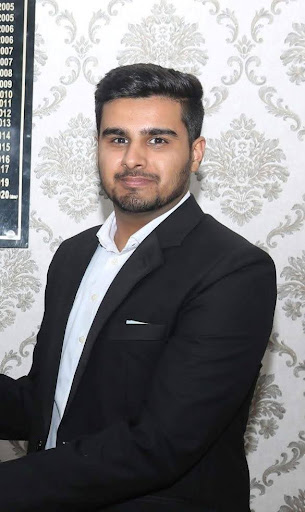About the NCA Exams:
- The National Committee on Accreditation (NCA) is a national body that assesses the qualifications of internationally trained lawyers and legal graduates seeking to enter the Canadian legal profession.
- NCA qualification is the single national gateway to Canadian provincial bar exams, and it enables eligibility for articling or the Lawyer Practice Program (LPP) in common-law provinces.
- Through the NCA process, candidates demonstrate equivalency to an approved Canadian common-law legal education, without the need to relocate or pursue a Canadian JD or LLM.
- NCA exams are essay-based, open-book examinations that test Canadian legal reasoning, legal research, and analytical writing skills through fact-pattern questions.
- Successfully clearing the NCA exams leads to the issuance of a Certificate of Qualification, a recognised signal to employers, recruiters, and law societies that the candidate has cleared a regulated equivalency process.
- The NCA pathway offers predictability and cost efficiency, with defined subjects, fixed exam fees, and a structured assessment framework, making it a practical alternative to Canadian law-school courses.
- NCA Exams are a cost-effective and predictable alternative to Canadian LLM or law-school courses, offering fixed pricing and specified exam requirements.
At LawSikho, we offer:
- End-to-end guidance across the NCA journey, including support with the NCA assessment process, exam selection and sequencing, registration reminders, and exam-readiness planning.
- Systematic preparation for essay-based, open-book NCA exams, focusing on IRAC-based answer frameworks, time management, and handling complex fact-pattern questions under 3-hour exam conditions.
- Personalised study plans and one-on-one mentoring, designed for working professionals, repeat candidates, and those planning NCA qualification within a defined timeline (including 6-month planning horizons).
- Detailed feedback on answer writing and mock exams, helping candidates bridge the gap created by limited transparency in official NCA exam results.
- Targeted support for candidates who have previously failed NCA exams, with diagnostic evaluation, structured remediation, and confidence-building exam strategies.
- Training by NCA-qualified faculty who have themselves cleared the NCA process and understand both academic expectations and practical challenges faced by the candidates.
Introduction
Can my law degree be considered academically equivalent to a Canadian JD for licensing purposes?
Do I need to pursue an LLM or a JD to practice law in Canada?
Do I have to spend significant money and relocate to Canada to take the NCA exams?
I have cleared the All India Bar Examination. Are foreign equivalency exams similar in structure or expectations?
I am a first-generation lawyer in India and aspire to live and practise in an English-speaking jurisdiction with a legal system comparable to India’s.
I want to move to Canada, a country known for its openness to immigrants and internationally trained professionals.
If these questions or thoughts come to your mind, we are going to tell you how you can prepare for and clear the NCA exams while continuing to live and work in your home country.
LawSikho is among the first legal education platforms in India to offer dedicated preparation for the Canadian NCA exams, addressing not only the syllabus but also the assessment process, exam expectations, and practical challenges faced by working professionals. Members of our own team have successfully cleared the NCA exams while working full-time, demonstrating that with the right approach, planning, and guidance, the process is manageable.
Through this program, we aim to help candidates develop the legal reasoning, answer-writing skills, and exam readiness required to confidently attempt the NCA examinations, while balancing professional commitments and long-term immigration or career plans.
Things to know before you fill out your application form and pay the application fee
- How to assess and meet the eligibility requirements for the NCA exams based on your academic background and professional experience.
- Costs and timelines associated with the NCA process.
- How to balance full-time work or other commitments with NCA exam preparation through realistic planning and sequencing.
- How to write analytical, exam-ready answers using the Issue–Rule–Analysis–Conclusion (IRAC) framework, as expected in Canadian law-school style fact-pattern questions;
- How to organise and use printed study materials effectively for open-book NCA examinations, including flagging and quick-reference techniques; and
- How to communicate legal analysis clearly and concisely in written English under strict time constraints.
What does it take to get called to the Canadian Bar?
Canada follows a common law system in most of its provinces and territories, with the exception of Quebec, which follows a civil law system for adjudicatory purposes. A lawyer licensed to practise in a non-Canadian jurisdiction, or a law graduate from a non-Canadian law school, can seek admission to practise law in a Canadian common-law province by completing the first and mandatory step of the licensing pathway: clearing the National Committee on Accreditation (NCA) process.
To begin this process, a candidate must apply to the Federation of Law Societies of Canada (FLSC) by submitting an application along with the prescribed fee of CAD 400 (approximately INR 25,000) plus taxes.
The application requires submission of official graduation and law-school transcripts and, where applicable, a certificate of good standing from the relevant bar council or licensing authority. Once submitted, the NCA typically takes approximately two months to assess a candidate’s academic and professional background and determine the number and type of NCA examinations required.
After receiving the NCA assessment, the candidate must complete the NCA-recommended examinations, either through self-study or by preparing with academic institutions or specialised training providers. These examinations assess a candidate’s knowledge of core Canadian law subjects and their ability to apply Canadian legal reasoning.
Upon successfully passing all required NCA examinations, the candidate becomes eligible to sit for the provincial Barrister and Solicitor licensing examinations, which are the official bar exams administered by individual Canadian provinces.
Most candidates are then required to complete either one year of articling under a lawyer licensed in Canada or enrol in the Lawyer’s Practice Program (LPP), depending on the province and the candidate’s circumstances. Following completion of these requirements, the candidate is formally called to the Bar by the relevant provincial law society and granted a licence to practise law in Canada.
LawSikho provides focused training and mentoring for candidates at the first and most critical stage of this journey of successfully navigating and clearing the NCA examinations.
About the NCA exams
The National Committee on Accreditation (NCA) assesses each candidate based on their legal education, legal work experience, and licensing status in a non-Canadian jurisdiction. Based on this assessment, the NCA determines the number and type of Canadian law subjects a candidate must complete to establish equivalency with a Canadian common-law legal education.
For example, as of January 2022, an Indian lawyer who has secured more than 50% aggregate marks in law school is generally required to demonstrate proficiency in six core Canadian law subjects, namely:
- Foundations of Canadian Law
- Canadian Constitutional Law
- Canadian Administrative Law
- Canadian Criminal Law
- Canadian Professional Responsibility; and
- Legal Research and Writing
LawSikho focuses on preparing candidates for five of these six core subjects: Foundations of Canadian Law, Canadian Constitutional Law, Canadian Administrative Law, Canadian Criminal Law, and Canadian Professional Responsibility, and provides materials for Torts, Contracts, and Property Law. These subjects are taught by NCA-qualified experts who have themselves cleared the NCA exams as part of their journey toward qualification in Canada and understand both the exam expectations and the practical challenges faced by internationally trained lawyers.
The subjects assigned to a candidate may vary depending on the NCA’s individual assessment. In addition to the core subjects, some candidates are required to take further examinations in areas such as Business Organizations, Commercial Law, Evidence, Torts, Contracts, Property Law, Family Law, Civil Procedure, Taxation, or Trusts.
Candidates may choose to complete these subjects through Canadian law schools; however, each course typically costs CAD 6,000–8,000 (approximately INR 3,60,000–4,80,000) and does not result in a degree or diploma. Instead, the law school merely submits a completion report to the NCA. By contrast, challenging the subjects through NCA examinations is significantly more cost-effective, with the fee for each exam being CAD 500 (as of January 2024), plus applicable taxes.
NCA examinations are primarily essay-based, and in some instances may include a limited multiple-choice or true-and-false component. Since the pandemic, these exams have been conducted online through a remote proctoring system. They are open-book examinations, permitting the use of printed notes only; electronic notes are not allowed. Each examination is three hours in duration, requiring candidates to manage time carefully while analysing fact-pattern questions and writing structured answers.
In certain cases, where a candidate is unable to demonstrate sufficient legal proficiency, commonly due to low academic scores (below 50%) or the absence of foreign legal licensing, the NCA may require the candidate to pursue a JD or LLM degree from Canada or another common-law jurisdiction instead of, or in addition to, the examination route.
Upon successfully passing all assigned NCA examinations (with 50% as the minimum passing requirement), the NCA issues a Certificate of Qualification. This certificate enables the candidate to apply for admission to the provincial bar admission process in any of the nine common-law provinces or territories in Canada. The province of Quebec follows a distinct civil-law system and has separate licensing requirements, including a French-language proficiency requirement.
Things to learn before the NCA exam
- How to read foreign statutes and regulations, identifying what is exam-relevant and how to use them efficiently in an open-book setting.
- How to read Canadian case law and judgments, extract legal principles, and apply them accurately to fact-pattern questions.
- How to write essay-based answers using the IRAC method, with clarity, precision, and focus on NCA expectations.
- How to approach and manage a 3-hour open-book examination, including effective use of hard copy materials, indexing, flagging, and note-referencing.
- Time management skills to balance issue identification, legal analysis, and answer completion within strict exam timelines, especially under complex fact patterns.
- Fast and accurate typing skills are required, as all essay answers are typed on a computer. Candidates are typically required to type approximately 1,500 to 4,000 words within 3 hours, while simultaneously analysing the question, structuring the answer, referring to written notes, and drafting coherent legal analysis.
Who should take these exams with us?
- Law students and law graduates, including final-year students and lawyers with 0–5 years of post-qualification experience, who intend to practise law in Canada but are unable to find reliable preparation resources.
- Legal professionals seeking global mobility (typically in the 24–35 age group) who wish to expand their legal careers internationally but are unable to relocate or take a career break at the outset.
- Candidates who have previously attempted and not cleared NCA examinations, and who now seek clarity, direction, and a more informed approach to the NCA process.
- Candidates who wish to obtain Canadian legal education and qualification while sitting at home, without pursuing a full-time JD or LLM in Canada.
- Canadian permanent residents or citizens who obtained their legal education outside Canada and now wish to enter the Canadian legal profession through the recognized NCA pathway.
- Lawyers whose law firms or employers are sponsoring, or may sponsor, their Canadian work permits or visas, and who require NCA qualification as part of their professional licensing process.
- Senior, retired, or experienced legal professionals who intend to migrate to Canada and wish to meet the licensing requirements to practise law in a Canadian common-law jurisdiction.
- Candidates seeking to qualify through the NCA process within a defined timeline, including those aiming to complete the exams within approximately six months, should plan their immigration or career transition accordingly.
Format of the Examination
The provincial Licensing Examinations (Barrister and Solicitor examinations) are administered in an open-book format. Candidates are permitted to bring printed materials only, including textbooks, notes, and study materials prepared in advance, into the examination area. Electronic materials are not permitted.
Each Licensing Examination consists entirely of multiple-choice questions. Candidates are required to select the single best answer from four options provided for each question. Credit is awarded only where the best answer is selected.
The questions in the Licensing Examinations are designed to assess candidates across three levels of cognitive ability:
- Knowledge and Comprehension: The ability to recall and understand relevant legal principles, rules, procedures, and standards (for example, identifying the appropriate rule under the Rules of Professional Conduct or applicable professional regulations).
- Application: The ability to apply legal knowledge in straightforward, practical situations, such as recognising the correct procedural step or legal response in routine scenarios.
- Critical Thinking: The ability to analyse and resolve complex legal problems, requiring the integration of legal knowledge, application, and sound judgment. This includes prioritising competing considerations, interpreting conflicting information, and selecting appropriate courses of action in fact-driven situations.
Each Licensing Examination includes a combination of independent multiple-choice questions and case-based multiple-choice questions. Independent questions stand alone and are unrelated to other questions. Case-based questions are preceded by a factual scenario that applies to a group of questions; however, each question within the case-based set is independent, and answering one question correctly is not dependent on answering another.
The Licensing Examinations do not include “all of the above” or “none of the above” as answer options.
For each examination sitting, multiple versions of the Licensing Examination may be created. Candidates registered for a particular sitting are randomly assigned one version. All versions adhere to the prescribed examination blueprint to ensure consistency and fairness.
Each Licensing Examination is 4 hours and 30 minutes in duration and comprises 160 multiple-choice questions, organised by area of law. Candidates are expected to attempt and answer all questions in each section within the allotted time.
What is unique about this course
Testimonials

Hello LawSikho, I hope this email finds you well. I am thrilled to share that I have successfully qualified as an NCA Candidate and am a step closer to becoming a Solicitor and Barrister in Canada, and I owe a significant part of this achievement to your incredible guidance and support throughout my journey with Lawsikho.
Your expertise, patience, and dedication made a profound impact on my preparation. The clarity with which you explained complex concepts, the practical insights you shared, and the encouragement you provided during challenging moments were instrumental in keeping me motivated and on track. Your mentorship transformed what seemed like an overwhelming process into a structured and achievable goal.
I am especially grateful for the personalized feedback on my assignments. Your commitment to my success went beyond expectations, and I will carry the lessons I’ve learned from you into my professional journey.
Thank you once again for being exceptional mentors, Shubham & Mansi! Lawsikho is truly fortunate to have educators like you, and I am so grateful to have been under your guidance. I look forward to staying connected and sharing more milestones in the future.
 Saswati Soumya (NCA Qualified)
Saswati Soumya (NCA Qualified)

I would take this opportunity to thank the entire team of LawSikho for admitting me as a student in their endeavour to build a class of students having dual licences to practise law, both in India and Canada. The journey of preparing and appearing for the exams has been overwhelming, but the constant support of the entire LawSikho team was the biggest motivation all along. The team was supportive, cooperative, and fully committed to the needs of the students right from the very start. I would also take this opportunity to thank the mentors. I could pass all my exams in the first go, that too in a short span of six months, only with the cooperation and team effort of all the mentors and members. I believe the LawSikho team has done a commendable job, and I wish them good luck for the coming batches of NCA students.
 Nishant Goyal (NCA Qualified)
Nishant Goyal (NCA Qualified)

It was an amazing experience with the NCA team. All the members in the team gave their best to help out in every situation and solve all the queries related to exams. By far, I have appeared for Canadian Constitutional Law and Professional Responsibility, and experts helped ina thorough understanding of both subjects. I am satisfied with the services that I received from LawSikho with respect to the NCA test prep course. I thank the whole team for their support and guidance!
 Vidita Saini (NCA Qualified)
Vidita Saini (NCA Qualified)

LawSikho has provided me with all the help I needed to clear my NCA exams on my first attempt. The mentors and experts are really good at their role during concept as well as exam preparation sessions. It is great to have them by my side during my NCA journey, and I will be grateful for having them for my BAR examination as well.
 Simardeep Kaur Puri (NCA Qualified)
Simardeep Kaur Puri (NCA Qualified)

From exceptional lecturers to incredible team support, LawSikho has truly exceeded my expectations in every way. NCA course subjects were taught by experienced professionals who were not only subject matter experts but also exceptional educators. Their expertise and passion for their respective fields shone through in every lecture, making complex legal concepts easily understandable and highly engaging. The dedication and enthusiasm of the lecturers truly made a significant difference in my learning experience, and I feel privileged to have had the opportunity to learn from them. The team's consistent assignment trackers were also commendable. Assignments helped me to practise answer writing, and the grading system in the portal also kept me motivated. LawSikho has truly exceeded my expectations as an online learning platform.
 Vidya Puthran (October 22 batch)
Vidya Puthran (October 22 batch)

I would like to thank Krusha Bhatt Ma'am for her lectures on Canadian Criminal Law, Canadian Constitutional Law, and the syllabus change lectures for Foundations. Her teaching style made it very interesting, and I realized that I could confidently sit for the exams.
Secondly, I would like to thank faculty member Shubham Bhatia. He is the best teacher for Foundations of Canadian Law. He was extremely patient during the lectures and ensured that the articles were covered in depth. He always answered all of my doubts during the lectures, even when I asked multiple times.
Also, the way he covered the exam prep module for Canadian Constitutional Law and Foundations of Canadian Law was excellent. I appreciate how he beautifully taught us how to approach these subjects, how to study the Foundations articles, and the best part was the way he taught us how to read the question paper and write the answers. He was always there in the meetings and always answered my random conceptual queries within seconds.
The mock questions and weekly assignments given by Team LawSikho were a gem, especially for Foundations of Canadian Law. The mocks ensured that I was thorough with my preparation and that I had covered everything in the syllabus. During the exams, I was confident enough to use my mock answers to write the actual exam.
Lastly, I would like to thank faculty member Mansi Motwani for her help in the Legal Research and Writing course. She was very patient throughout the meetings and took a lot of time to identify and rectify even the smallest errors in my assignments. Eventually, the Legal Research and Writing course became a cakewalk. All thanks to Mansi Motwani.
Thank you, LawSikho, for providing excellent resources, lectures, and faculty. I qualified NCA in just 8 months.
 Dhruvi Jariwala (NCA Qualified)
Dhruvi Jariwala (NCA Qualified)

I would like to sincerely thank you for the outstanding guidance and support provided during my NCA preparation. I am happy to share that I have successfully qualified NCA, and I truly credit this achievement to the mentorship and resources offered by your team.
The lectures were conducted in a way that made even difficult concepts easy to grasp. The study material was detailed yet concise, making it easy to use in the exam. The feedback on assignments and regular follow-ups from the team kept me focused and motivated.
Thank you once again for walking with me through this challenging process and helping turn my goal into a reality.
 Priyanshee Peeyush Srivastava (NCA Qualified)
Priyanshee Peeyush Srivastava (NCA Qualified)

I wish to extend my sincere thanks for the remarkable support and guidance I received throughout my NCA preparation. I am pleased to share that I have successfully qualified the NCA, and this would not have been possible without your help.
The lectures were extremely well-structured and simplified even the most complex topics, making them easier to understand. The study materials were thorough, organized, and perfectly aligned with the exam requirements, which made preparation much more focused and effective.
The timely responses, detailed feedback, and constant encouragement from the team members gave me the confidence to stay on track and keep pushing forward.
Thank you once again for being such a strong pillar of support during this journey. I am truly grateful to LawSikho for playing such an important role in my success.
 Prabnoor Kaur (NCA Qualified)
Prabnoor Kaur (NCA Qualified)

I am writing to express my heartfelt gratitude for the incredible support and guidance I received throughout my NCA journey. I am delighted to share that I have successfully qualified NCA. The lectures were clear and immensely helpful in breaking down the complex concepts. The study material was comprehensive and easy to follow.
Most importantly, the unwavering support from the team members made all the difference. The prompt responses to queries, the constructive feedback on assignments, and the encouragement at every step kept me motivated and confident.
Thank you for not only for helping me but also for making me feel supported throughout this challenging process.
 Mittal Patel (NCA Qualified)
Mittal Patel (NCA Qualified)

I am truly grateful for the assistance I received from your team throughout my NCA preparation. I am pleased to share that I have successfully cleared all the exams, and your support was a key factor in making this possible. The lectures made even the most technical topics much easier to understand. The study materials were comprehensive, concise, and exam-focused, which allowed me to study with clarity and confidence. Whether it was resolving doubts quickly or giving constructive feedback, the support from the team made this journey far more manageable.
Thank you for being such an integral part of my success.
 Swathi Hariprasad (NCA Qualified)
Swathi Hariprasad (NCA Qualified)

I am happy to share that I have successfully cleared all of my NCA exams, and I owe a great deal of this achievement to your constant support and guidance. This milestone would not have been possible without the effort, commitment, and expertise that your team poured into every stage of my preparation.
The lectures were clear and engaging. The study materials were precise, exam-focused, and immensely helpful in streamlining my preparation.
Thank you for being more than just mentors; the team members have been an integral part of my journey and success.
 Mannat Marwaha (NCA Qualified)
Mannat Marwaha (NCA Qualified)

I am writing to express my sincere gratitude for the invaluable role your NCA course played in my journey to clearing my NCA examinations and achieving NCA Qualification. The comprehensive support provided by your platform was instrumental in ensuring that my preparation was both effective and focused.
The study materials and the examination preparation module provided clarity and were well-structured.
Additionally, the lectures facilitated the simplification of even challenging topics. Special thanks to Megha Sharma and Krusha Bhatt, as their teaching methods made concepts very clear and easier to understand.
 Saira Singh (NCA Qualified)
Saira Singh (NCA Qualified)

I sincerely appreciate the guidance and support extended to me during my NCA preparation. Reading material and lectures were clear and engaging. I would also like to specifically thank the team members who made themselves available to entertain queries and provided prompt support. Ms. Simardeep and Ms. Irveen helped in navigating through the lawsikho online resources, right from onboarding to keeping track of progress through the NCA journey. I sincerely thank them for their support.
 Divyanshu Sharma (NCA Qualified)
Divyanshu Sharma (NCA Qualified)

I am truly grateful to LawSikho for their invaluable support in my NCA preparation journey. Their live and recorded lectures were extremely well-structured and comprehensive. What truly stood out for me was the one-on-one doubt-clearing sessions, strengthening my understanding of complex concepts.
What I appreciated most was how the team simplified the material and explained everything in a way that felt clear and approachable, which gave me confidence throughout the process. Thanks to their guidance and resources, I was able to pass all my NCA exams on my first attempt. I highly recommend LawSikho to anyone looking for a reliable and supportive partner in their NCA preparation.
 Raunak Kaur (NCA Qualified)
Raunak Kaur (NCA Qualified)

I'm thrilled to share that I've successfully completed all NCA exams and am now NCA qualified. Special thanks to Shubham Bhatia, my course anchor, for his invaluable guidance and support throughout this journey. Your team's expertise and assistance were instrumental in my success. Thank you for your help and support.
 Panchami Pranesh (NCA Qualified)
Panchami Pranesh (NCA Qualified)

I am delighted to share that I have successfully passed all the exams required in my NCA journey. This achievement would not have been possible without the guidance, resources, and constant support provided by LawSikho.
The classes were extremely comprehensive and covered the syllabus in detail. The PPTs and study materials were thorough, eliminating the need to constantly refer to multiple sources. This structured approach proved very useful in preparing for and clearing the exams.
I would like to extend my gratitude to Mr. Shubham Bhatia for his skilful and professional guidance. His availability for one-to-one sessions helped me gain not only clarity of the syllabus but also an appreciation of the subject matter as a whole. He also personally ensured I attempted the mocks.
Additionally, the provision of recordings, including past lectures, was immensely valuable. Watching these provided me with different perspectives and further enriched my understanding of key concepts.
I am truly grateful to the entire LawSikho team for their dedication and support, which played a crucial role in helping me complete my NCA journey successfully.
 Hernurr Singh Somal (NCA Qualified)
Hernurr Singh Somal (NCA Qualified)

I am delighted to share that I have successfully passed all the exams required in my NCA journey. This achievement would not have been possible without the continuous support the mentors at LawSikho have provided.
The classes were extremely comprehensive and covered the syllabus in detail. The PPTs and study materials were thorough, eliminating the need to constantly refer to multiple sources. This structured approach proved very useful in preparing for and clearing the exams.
I would specifically like to extend my gratitude to Mr. Shubham Bhatia for his skilful and professional guidance. His availability for one-to-one sessions helped me gain not only clarity of the syllabus but also an appreciation of the subject matter as a whole.
Additionally, the provision of recordings, including past lectures, was immensely valuable. Watching these provided me with different perspectives and further enriched my understanding of key concepts.
I am truly grateful to the entire LawSikho team for their dedication and support, which played a crucial role in helping me complete my NCA journey successfully.
 Deeksha Dua (NCA Qualified)
Deeksha Dua (NCA Qualified)

I wanted to share a quick note of gratitude and appreciation. With your support, I’ve successfully passed all NCA exams and got my CQ. Your team has helped me pass these exams (i.e., Professional Responsibility, Constitutional Law, Property Law, and Administrative Law).
A special thanks to Sir Shubham Bhatia. His hard work, clarity, patience, and practical guidance made a huge difference. I’m especially grateful for his: (a) Live online sessions that broke down complex topics into clear, exam-ready takeaways, and especially how he made me understand things and concepts. (b) One-to-one doubt-clearing meetings, during which he was extremally supportive and took me through difficult concepts and explained those which gave me confidence and direction at critical moments (c) High-quality study material that stayed focused on what actually matters for the exam (d) Exam strategy papers and sessions in which he taught me how to manage time, navigate open-book materials, and avoid common traps
Please extend my thanks to everyone behind the scenes who contributed to the curriculum, scheduling, and student support. I’m truly appreciative of the professionalism and dedication your team brings to legal training.
 Muhammad Ather (NCA Qualified)
Muhammad Ather (NCA Qualified)

I am pleased to share that I have successfully qualified the NCA. I would like to extend my gratitude for the support you provided throughout the process.
The IRACs, study material, and classes were well-structured and immensely helpful in my preparation. The clarity and quality of the resources made a significant difference in my learning journey.
Thank you once again for your guidance and effort that went into creating such effective study support.
 Varsha Ravi (NCA Qualified)
Varsha Ravi (NCA Qualified)

I have successfully cleared all my NCA exams!
From the very beginning, I blindly trusted the advice given during the lectures, and it truly paid off. I ensured that I solved all the mocks, which helped me evaluate my performance and improve along the way. The IRACs were an absolute gem, and they made structuring my answers so much easier. The books provided everything important for the exams, with case laws explained in a very clear and detailed manner. I never felt lost while preparing, as all the necessary resources were right there.
A big thanks to the team for such well-structured support throughout this journey!
 Upneet Kaur Sandhu (NCA Qualified)
Upneet Kaur Sandhu (NCA Qualified)
What is unique about this course?
Our focus is not just on teaching Canadian law, but on preparing candidates to write and pass essay-based, open-book NCA examinations with confidence.
What truly sets this course apart is the depth of preparation, personalised mentoring, and exam realism built into every stage of the program.
Exam-like preparation, not just theory: You receive 50+ actual exam-style mock questions and weekly assignments, closely aligned with NCA fact-pattern questions. These are designed to train you in issue-spotting, IRAC structuring, time management, and analytical writing exactly as required in the NCA exams.
70+ live lectures with recordings: The course includes 70+ live lectures, supported by recordings, covering:
- Core Canadian law concepts
- How to read statutes and cases for the NCA
- Answer-writing frameworks and exam strategy
- Common mistakes and examiner expectations
This ensures conceptual clarity as well as strong answer-writing skills under 3-hour exam conditions.
One-on-one assistance throughout the NCA journey: You receive personalised, one-on-one support at every stage, from understanding your NCA assessment, choosing and sequencing subjects, planning timelines, exam readiness, and all the way up to obtaining your NCA Certificate of Qualification.
In-depth evaluation and detailed feedback: Every assignment and mock answer is evaluated in detail. Detailed feedback is also provided.
Dedicated one-on-one support for Legal Research and Writing: Our course includes exclusive one-on-one mentoring for this paper, focusing on:
- Canadian research methodology
- Citation standards
- Memo and problem-style writing
- Precision and clarity in legal analysis
Support beyond core subjects: In addition to the five core NCA subjects, we provide study materials and recordings for additional subjects such as Torts, Contracts, and Property Law.
LawSikho’s NCA course is an exam-centric preparation program, built by people who have cleared the NCA themselves and understand what it takes to pass.
Our Course Anchor
Note: This is an indicative list of our guest faculty members and not an exhaustive list. We may change the faculty members at any point based on availability.
Syllabus for NCA exams
All the syllabus has been taken from the official NCA website.
Syllabus for Canadian Administrative Law:
- Setting the Stage
- Sources of Procedural Obligations
- Procedural Obligation Triggers (Knight “Three-Prong” Trigger and the Concept of “Legitimate Expectation”)
- Procedural Obligation Triggers (Legislative Decisions & Emergencies)
- Procedural Obligation Triggers (Charter & Bill of Rights)
- Procedural Obligation Triggers (Constitutional Duty to Consult and Accommodate Indigenous Peoples)
- Content of Procedural Obligations (Right to be Heard)
- Content of Procedural Obligations (Unbiased and Independent Decision-maker)
- Content of Procedural Obligations (Issues arising from institutional decision-making)
- Backdrop to the Standard of Review Analysis
Syllabus for Canadian Constitutional Law:
PART 1: BASIC CONCEPTS
1. Sources and Nature of the Constitution
2. Amending Procedures
PART 2: DISTRIBUTION OF LEGISLATIVE POWERS
3. Federalism
4. Judicial Review and Principles of Interpretation
5. Property and Civil Rights
6. Trade and Commerce
7. Peace, Order, and Good Government
8. Criminal Law
9. Ancillary Powers
10. Paramountcy
11. Interjurisdictional Immunity
PART 3: ABORIGINAL RIGHTS AND THE CONSTITUTION
12. Introduction
13. Aboriginal Rights
14. Aboriginal Title
15. Treaty Rights
16. Duty to Consult
PART 4: THE CANADIAN CHARTER OF RIGHTS AND FREEDOMS
17. Interpreting the Canadian Charter of Rights and Freedoms
18. Application of the Canadian Charter of Rights and Freedoms
19. Override of Rights
20. Freedom of Conscience and Religion
21. Freedom of Expression
22. Life, Liberty and Security of the Person
23. Equality Rights
24. Limitation of Rights
25. Remedies
Syllabus for Canadian Criminal Law:
GENERAL OVERVIEW AND PRELIMINARY MATTERS
1. The Sources of Criminal Law
2. The Power to Create Criminal Offences and Rules of Criminal Procedure
- Constitutional Division of Powers Introduced
- The Canadian Charter of Rights and Freedoms
3. The Procedural Classification of Offences
4. Interpreting Criminal Provisions
- Definitions
- Purposive Interpretation
- French/English
- The Charter
THE ELEMENTS OF A CRIMINAL OR REGULATORY OFFENCE
5. The Actus Reus
- Acts and Statutory Conditions
- The “Act” of Possession
- Consent as an Element of the Actus Reus
- Causation
- Omissions
6. Subjective Mens Rea
- Intention, Purpose and Wilfulness
- Subjective Mens Rea with Objective Features
- Knowledge
- Willful Blindness
- Recklessness
7. Objective Mens Rea and True Crimes
8. Regulatory Offences
EXTENSIONS OF CRIMINAL LIABILITY
9. Aiding and Abetting
10. Counselling
11. Attempts
12. Corporate and Association Liability
SELECT CRIMINAL DEFENCES
13. Mental Disorder
14. Automatism and Involuntary Acts “Negativing” the Actus Reus
15. Simple Intoxication and Specific Intent Crimes
16. Extreme Intoxication and General Intent Crimes
17. Defence of the Person
18. Necessity
19. Duress
20. Provocation
21. Entrapment
22. Error of Law and Colour of Right
THE ADVERSARIAL PROCEEDING
23. The Adversarial Process
- The Presumption of Innocence and the Ultimate Standard of Proof
- Other Burdens
- The Neutral Impartial Trier
- The Role of the Prosecutor
- The Role of the Defence
GETTING TO THE TRIAL: THE CRIMINAL INVESTIGATION
24. Police Powers
GETTING TO THE TRIAL: TAKING CONTROL OVER THE ACCUSED
25. Securing Jurisdiction over the Accused and Interim Release
GETTING READY FOR TRIAL
26. Disclosure and Production
27. Preliminary Inquiries
28. The Jury Trial
29. Pre-Trial Motions
30. Trial Within a Reasonable Time Applications
SENTENCING
31. General Principles of Sentencing
APPEALS AND REVIEW
32. Appeals of Final Decisions and Judicial Review of Interim Decisions
Syllabus for Canadian Professional Responsibility
The Legal Profession: Lawyers in Society and a Society of Lawyers
1. Professions and Professionalism: The Profession of Law and Law as a Profession
2. Regulation of Lawyers and Regulation of the Legal Profession
Ethics, Lawyering and Professional Regulation
3. The Lawyer-Client Relationship
4. The Preservation of Client Confidences
5. Conflicts of Interest
6. The Adversary System and Lawyers as Advocates
Some Specific Practice Areas
7. Ethics and Dispute Resolution: Counselling and Negotiation
8. Ethics and the Practice of Criminal Law
9. Government Lawyers
10. Lawyers in Organizational Settings
Access to Justice
11. Access to Justice
Syllabus for Foundations of Canadian Law:
1. Basic Theories of Law; Racism & the Law
- Positivism and Natural Law
- Feminist Perspectives on Law
- Critical Legal Studies
- Law and Economics
2. Indigenous Peoples and the Law
- Aboriginal Rights and Title
- Indigenous Self-Government Aspirations
- The Modern Treaty-Making Process
3. Sources of Canadian Law
- The Common Law and Civil Law Traditions
i. Reception of European Law
ii. Bijuralism
iii. Common Law Method: Precedent and Equity
- Statutory Law
- International Law
4. Fundamental Principles of the Canadian Legal System
- The Constitution of Canada
- Principles Underpinning
- Public Law
i. Rule of Law
ii. Constitutional Supremacy
iii. Parliamentary Sovereignty
iv. Federalism
v. Separation of Powers
vi. Judicial Independence (Overview)
- Constitutional Amendment
5. Parliament and its Components
- The Monarch and Governor General
- Senate
- House of Commons
6. Functions of Parliament
- Summoning
- Prorogation
- Dissolution
- Key Actors
- Parliamentary Procedure and Law-Making
7. The Executive and its Functions
- The Functions of the Executive
- Sources of Executive Power
- Executive Institutions and the Political Executive
8. The Courts and the Judiciary
- Structure of the Canadian Court System
- Judicial Appointments
- Judicial Independence
9. Statutory Interpretation
- Approaches to Interpretation
- The Modern Approach to Interpretation
10. Constraints on Legislative and Administrative Action
- Judicial Review in a Democratic Society
- Judicial Review of Administrative Action
Sample questions for NCA exams
This question has been taken from the NCA sample Criminal Law Exam available on the NCA website
QUESTION TWO - 15 MARKS (18 minutes suggested time)
Bosny is charged with the first-degree murder of his wife, contrary to section 231(2) of the Criminal Code of Canada. A preliminary inquiry is being conducted. The Crown’s allegation is that Bosny strangled her. Evidence showed that Mrs. Bosny was found, barely alive, floating in the backyard swimming pool by the family housekeeper at 9:00 on a Wednesday morning. An ambulance was immediately dispatched, and the paramedics attempted to resuscitate her. A tracheal tube was forced into her throat to open her airways, and she was given CPR. In spite of the efforts, Mrs. Bosny died. During the preliminary inquiry, the Crown called this background evidence, as well as a pathologist, Dr. Curran. Dr. Curran testified that on his examination, he discovered that Mrs. Bosny had contusions or bruising on the left side of her brain as well as a matching external bruise to her forehead. Together, the bruises were consistent with her having received a strong blow to the head. He also determined that she had damage to the inside of her throat, which, in his opinion, could have been caused by manual strangulation. He did not observe any petechial haemorrhages, nor was the hyoid bone fractured - two positive but not indispensable indicia of strangulation. There was only a moderate amount of water in her lungs, and this did not, in the opinion of the pathologist, cause her death. Defence counsel produced a significant amount of medical literature during the cross-examination of the pathologist to show that, according to generally accepted standards of practice, pathologists will not identify strangulation as a cause of death without two of three symptoms – external bruising on the neck, petechial haemorrhages, and fractures in the small bones of the neck, none of which were present. Dr. Curran agreed that the injuries inside the neck could be caused by the insertion of a tracheal tube, but he did not think so here, although he had never seen the kind of damage such a tube could make if used aggressively. A representative of the Regional Bank was called to testify. He gave evidence that Bosny’s business was in financial trouble. A representative of Hart Insurance testified that around the time of Mrs. Bosny’s death, he could not be sure exactly when because he did not keep any notes. Bosny called to check on the status of their insurance policies because he was “thinking of taking his book of business elsewhere.” The representative testified that he told Bosny that his life and the life of his wife were each insured for $1,000,000. A police officer testified that when he visited Bosny to tell him about the death of Mrs. Bosny, he did not seem shocked, and said, “I hope you don’t think I have anything to do with that because of our fight this morning.” The defence called one witness, Bosny’s daughter, who testified that her Mom and Dad used the word “fight” to describe verbal disagreements, and that her Dad was a caring husband. Will Bosny be committed to stand trial for first-degree murder?
NOTE: LawSikho is not affiliated with the Federation of Law Societies of Canada or any provincial law society in Canada. Anything taught by our instructors or employees does not constitute legal advice or solicitation under the laws of Canada.
Course Plan
Above prices are inclusive of all applicable taxes and charges.
 Standard
Standard
Access to course material and live lectures for five years.
Group and personal mentoring sessions for all the core subjects and specialisation.
Get digital access to entire study material
Access on LMS, Android & iOS app
Instructor feedback on assignments
Unlimited doubt clearing sessions
Instructor led course with online live classes
CV enhancement
Coaching for professional networking
Internship & job support
Personalised freelancing support
Interview preparation support
Top performers are recommended for jobs and client opportunity








 Key Highlights
Key Highlights





 ADDICTIVE LEARNING TECHNOLOGY LIMITED
ADDICTIVE LEARNING TECHNOLOGY LIMITED











